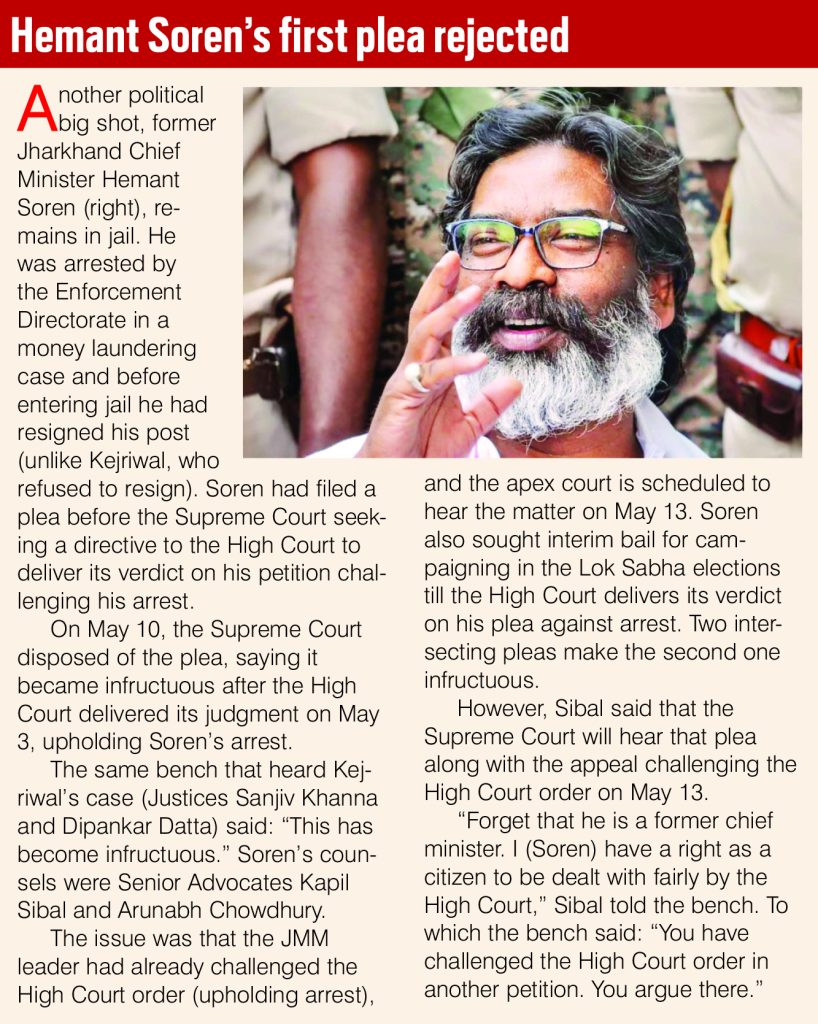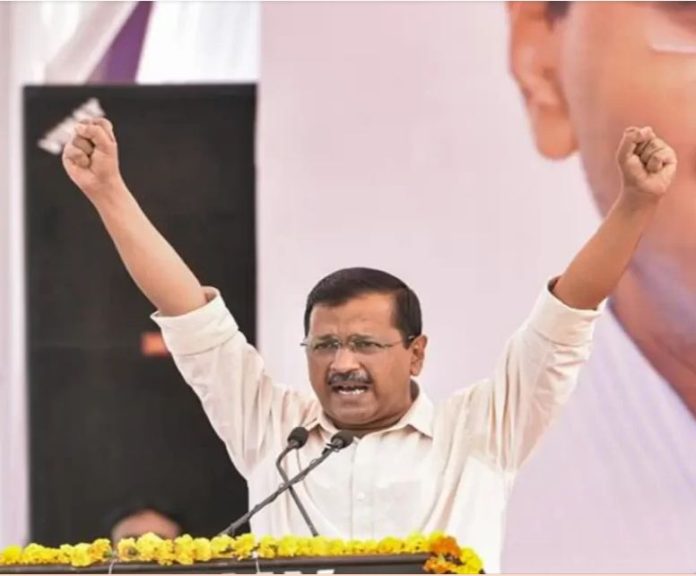As the Supreme Court grants interim bail to the chief minister of Delhi, completely rejecting the Enforcement Directorate’s objections, the Court upholds the basic tenet of law that a person is innocent till proven guilty, unlike what the PMLA Act forcefully presupposes
By Sujit Bhar
Unlike in the Prevention of Money Laundering Act (PMLA), where the prosecution is allowed to presuppose the defendant’s guilt till he/she can prove innocence, civil societies develop on the principle of innocence till guilt is proven in a court of law. The principle presumption of innocence is necessary in criminal or even civil cases, because this protects the life and personal liberty of a person.
The Court keeps this in mind, while granting interim bail to a person, essentially to protect his/her reputation. This is a remedy that can save an innocent person from spending time in jail before trial.
The Supreme Court, on May 10 granted interim bail to Delhi Chief Minister Arvind Kejriwal and allowed him to campaign for the upcoming Lok Sabha elections. The Enforcement Directorate (ED) had vehemently opposed the interim bail on grounds that the law should be evenly applied to all, irrespective of his social standing. The bail lasts till June 1 and Kejriwal is supposed to surrender before the Court after that. The Court also barred Kejriwal from discharging any official duties as chief minister.

Kejriwal was apprehended by the ED in the money laundering case registered against him in connection with the Delhi excise policy (Arvind Kejriwal vs Directorate of Enforcement).
In its arguments (for allowing interim bail), the apex court bench of Justices Sanjiv Khanna and Dipankar Datta said the following:
“It is no gain saying that General Elections to Lok Sabha is (sic) the most significant and an important event this year, as it should be in a national election year. Between 650-700 million voters out of an electorate of about 970 million will cast their votes to elect the government of this country for the next five years. General Elections supply the vis viva to a democracy. Given the prodigious importance, we reject the argument raised on behalf of the prosecution that grant of interim bail/release on this account would be giving premium of placing the politicians in a benefic position compared to ordinary citizens of this country. While examining the question of grant of interim bail/release, the courts always take into consideration the peculiarities associated with the person in question and the surrounding circumstances. In fact, to ignore the same would be iniquitous and wrong.”
That, devoid of jargon, would boil down to simply the fact that being a politician, he is required to be among his supporters during election time and that negates the argument that the same rule (on interim bail) should apply to one and all.
Earlier in the order, the Court had said: “A number of legal pleas and issues have been raised, including the scope and violation of Section 19 of the Prevention of Money Laundering Act, 2002.”
That is crucial, because Section 19 (Power to arrest), sub-section (1) says: “If the Director, Deputy Director, Assistant Director or any other officer authorised in this behalf by the Central Government by general or special order, has on the basis of material in his possession, reason to believe (the reason for such belief to be recorded in writing) that any person has been guilty of an offence punishable under this Act, he may (emphasis provided) arrest such person and shall, as soon as may be, inform him of the grounds for such arrest.”
The law is not ambiguous on this, and the Court used this to effect.
Kejriwal’s release on interim bail was an issue that had not even been initiated by the defendant. Kejriwal never applied for bail. He just challenged the arrest. The Court, in its wisdom, found this bail necessary. This also proves the fact that a court of law intrinsically believes in the theory of innocence till proven guilty.
THE AAP OBJECTION
The Aam Aadmi Party (AAP), of which Kejriwal is the national convener, had questioned the ED’s objection to the interim bail, saying that it was well known that even after two years of investigation by the ED in the alleged liquor scam, not a single rupee or piece of evidence had been recovered incriminating anybody in AAP.
The AAP also pointed out that the grounds of arrest of Kejriwal were based on statements made by other implicated persons, such as Magunta Sreenivasulu Reddy, Sarath Reddy, Satya Vijay Naik, and a close aide of an ex-BJP CM.
The ED had relied solely on the statements of these accused-turned-witnesses, with direct links to and benefitting from the BJP, the AAP argued.
The AAP pointed out that Magunta, who received an NDA Lok Sabha ticket, gave a statement to facilitate the bail of his son, Raghav Reddy. Another approver, P Sarath Reddy, sent Rs 60 crore to the BJP’s account through electoral bonds to secure his own bail. A third person, Satya Vijay Naik, who fought the 2022 Goa assembly elections on the AAP ticket, was closely associated with Goa CM Pramod Sawant and fought on the BJP ticket in 2012 and 2017. Another accused- turned-approver was a close aide of former BJP CM Manohar Parrikar.
There was also the fact that Kejriwal had not been named as an accused in the ECIR, nor was he named as an accused in the scheduled offence registered by the CBI, which is the foundation of the proceedings in the ECIR.
The AAP contended that the power to arrest in this case is a glaring abuse of the due process of law as well as the procedure established. That has been Kejriwal’s challenge.
THE POLITICAL OUTCOME
The political outcome of this interim bail happened as feared by the ED, CBI and the BJP. In the night of May 10 itself, Kejriwal addressed his supporters at gate 3 of Tihar jail, where he spent 50-odd days and said that it was essential “to fight dictatorship”. He was obviously referring to his principal political opponent, the BJP.
Arrangements had been made at Tihar gate number 3 for his release, but Kejriwal was released from gate number 4 from where he came to gate No. 3 and addressed the supporters.
The outcome of the case is a matter of how the Court interprets the charge sheet (no charges have been framed as yet), but the political dividend for Kejriwal is huge. This dividend is also bound to spill over onto the plates of all INDIA alliance partners, in the form of a renewed vigour. This was what the ED feared, and, therefore, was vehemently opposed to the bail.
In the end, the basic tenets of law and jurisprudence may have won the day.


